Thursday, December 19, 2019
Wednesday, December 18, 2019
The HINDU Notes – 18th December 2019
VisionIAS
19:05

📰 Time to defend India’s secularism
The Citizenship (Amendment) Act has imperilled the nation’s constitutional values, and no one can afford to be silent
•India’s secular structure faces a profound crisis. The Citizenship (Amendment) Act, 2019, must be rejected for three reasons. First, it is against the letter and spirit of our Constitution. Second, it is divisive, deeply discriminatory and violative of human rights. Third, it seeks to impose the politics and philosophy of Hindutva, with its vision of a “Hindu nation”, on our entire people and on the basic structure of our polity. Our constitutional values are in peril, and no person who has faith in our democracy can afford to be silent and uninvolved in what is happening around us.
Against common citizenship
•Let us understand each of these three points. The first is that the Citizenship (Amendment) Act is against the letter and spirit of our Constitution. Articles 5 to 11 of the Constitution deal with citizenship, and the Citizenship Act, 1955, lays down criteria for citizenship based on birth, descent, registration, naturalisation, and citizenship by incorporation of territory. By setting new criteria, the Citizenship (Amendment) Act goes against the premise of common citizenship regardless of differences of caste, creed, gender, ethnicity and culture. Further, Article 14 of the Constitution lays down that the “State shall not deny to any person equality before the law or the equal protection of the laws within the territory of India”. It bears emphasis that Article 14 applies not only to citizens but to “all persons within the territory of India”.
•What do we mean by the spirit of the Constitution? We associate the drafting of our Constitution with the rich debates of the Constituent Assembly, and the wisdom of its members, amongst whom Babasaheb Ambedkar stands tall. It is often not recognised, however, that it was the heroism of millions of unsung freedom fighters that made our Constitution a reality. These men and women, who came from the working class, peasantry, and socially marginalised groups — whatever their religious persuasion — challenged the colonial authorities in their struggle for human rights and economic justice. This struggle had broader aims than the overthrow of colonial rule. These torchbearers of modern Indian history played a crucial role in creating the demand for social justice, and a Constitution with democratic and secular values in a society in which discrimination and inequality were deeply ingrained. Although the framing of the Constitution did not mark the end of the struggle for civil liberties and for an egalitarian society, it, nevertheless, was a milestone in our history.
•Our freedom fighters were also conscious that theirs was a struggle for a society free of caste and religious deprivation and discrimination, and free of the deep social and economic inequalities that characterise Indian society. This was true of the manifestos of the Left from the early 1920s; this aspiration was also reflected in the resolution of the Karachi session of the Indian National Congress in 1931, held after the execution of Bhagat Singh and his comrades. Confronted by the radical mass upsurge of the time, the Congress passed resolutions on the freedom of speech, press, freedom of assembly, freedom of association, and equality before the law.
•The national movement in British India was further strengthened by movements in the erstwhile princely States. Our forebears dreamt of an independent India where communal prejudice would be alien to the polity. It is not surprising that the threat to those parts of our Constitution that defend secularism, democracy, social equality, federalism, and individual and social diversity, should come from that section of the polity that did not participate in the freedom struggle. The surrender to British imperialism by the precursors of today’s forces of Hindutva, is a chapter of India’s history that is cast in stone. No amount of denial can change that unheroic past.
Violative of rights
•Our second point is that the Citizenship (Amendment) Act is divisive, deeply discriminatory and violative of human rights. As I have written before, our national unity was won through struggle; the Citizenship (Amendment) Act is one of the many threats to its survival. Our hard-won Constitution recognises individual and social differences, and that we must weave the cord of unity by creating a sense of belonging and inclusiveness for all.
•The Citizenship (Amendment) Act attempts to create and deepen communal division and social polarisation in the country. The Act gives eligibility for citizenship to Hindus, Sikhs, Buddhists, Jains, Parsis and Christians from Afghanistan, Bangladesh and Pakistan who entered India on or before December 31, 2014, and specifically excludes Muslims from that list. In granting citizenship on the basis of religion, it discriminates against Muslims and rejects the basic concept of secularism.
•That the Citizenship (Amendment) Act is discriminatory and violative of human rights has been recognised by those who have come out on the streets in many States, in opposition to the Act. It is noteworthy that university and college students figure so prominently in the upsurge against the Act. Though pushed through in the Lok Sabha and the Rajya Sabha by the Bharatiya Janata Party (BJP) and its allies, these young citizens of India have come together — much as students did during the anti-colonial struggle — to reject the attempt to divide India along religious lines. They have denounced this Act as discriminatory and violative of human rights.
The Right’s agenda
•Our final point, that the agenda of Hindutva and its ultimate goal of establishing a “Hindu Nation” underlie the Citizenship (Amendment) Act, is well established both by past experience and the present actions of the BJP-Rashtriya Swayamsevak Sangh. We mentioned earlier the absence of the forces of Hindutva from the freedom movement. It was in this period that M.S. Golwalkar propounded his theory of India as a “Hindu Nation,” where other religious communities had no rights of citizenship. The Citizenship (Amendment) Act is the latest blow by the BJP to the secular nature of our polity.
•When the Left has been in Government we have made every effort to use the machinery at our command to preserve communal harmony; elsewhere, we have organised the masses to ensure such harmony.
Notes from Kerala
•Kerala’s struggle for secularism and social equality has much to teach us. Historically, the different strands of Kerala’s social renaissance and, subsequently, the forces of the Left and other progressive sections, fought hard against social discrimination and communalism, and for social and economic equality.
•All political parties and social groupings of different types in Kerala, other than the parties and organisations of Hindutva, have come together against the Citizenship (Amendment) Act. The peaceful satyagraha held in Thiruvananthapuram on December 16, attended by political parties, religious leaders, and cultural leaders is a symbol of our united determination to uphold constitutional values and basic human rights, and to oppose discrimination.
•We cannot postpone our protest and united resistance against this assault on secularism and democracy.
📰 Defence ties to get push at ‘2+2’ with U.S.
The HINDU Notes – 17th December 2019
VisionIAS
19:00

📰 Climate of inaction: On UN climate change conference
India should not take comfort from its status as a low per capita carbon emitter
•If climate change is the defining issue of the century, the UN conference in Madrid failed miserably in galvanising action to address it. This year’s outcome is all the more depressing because nearly 200 delegates representing rich and poor countries had the benefit of new scientific reports from the Intergovernmental Panel on Climate Change warning of near-certain catastrophic consequences of inaction, and an analysis from the UN Environment Programme on the gap between current greenhouse gas emissions and the limit over the coming decade. Eventually, in Spain, the Conference of the Parties to the Paris Agreement, degenerated into an unproductive wrangle over establishing a market system to trade in carbon credits earned through reductions in emissions, with some countries eager to cash in on poorly audited emissions savings from the Clean Development Mechanism of the Kyoto Protocol that preceded the Paris pact. Such horse trading stands in contrast to the real losses from extreme weather events that climate-vulnerable countries, India included, are facing with frightening regularity: even insured losses worldwide during 2017 and 2018 together stood at a record $225 billion, while the bulk of destruction had no such risk cover. These dire data should have imbued the climate negotiations with urgency and purpose, but the final declaration was desultory, merely expressing serious concern at the emissions gap in seeking to limit temperature increase to 1.5° C.
•Climate negotiators might have tossed the more intractable questions — raising $100 billion a year from 2020 for developing countries, creating a strong framework to address loss and damage from climate events and transferring technology to poorer countries on reasonable terms — to the next conference a year later, but they cannot avoid rising pressure from civil society in several countries for concrete action. One of the models that will be closely studied is the Green Deal that has been announced by the European Commission, with binding targets for member nations to cut emissions by at least 50% by 2030 and go net zero by 2050. This approach could potentially make the EU the leader in global climate action, a position that the U.S. never adopted, and China will take longer to aspire for. India’s own status as a low per capita carbon emitter offers little comfort as its overall emissions are bound to grow. With a low base compared to other major nations, it may well achieve its initial voluntary targets under the Paris Agreement, but a shift away from fossil fuels is inevitable in the longer term. As it prepares to face calls for higher ambition in 2020 and beyond, India has to involve its States in mitigation and adaptation efforts. Death and destruction by frequent storms, floods and droughts should lead to urgent cohesive action.
📰 The widening fissure in India’s rule of law
Daily Current Affairs, 18th December 2019
VisionIAS
18:37

1) International Migrants Day: 18 December

•The International Organization for Migration salutes migrants and the communities they join, the communities they remake through their mutual effort. We salute them and we support them, and pledge to make the future we believe is arriving for all of us. #WeTogether.
2) Union government launches National Broadband Mission
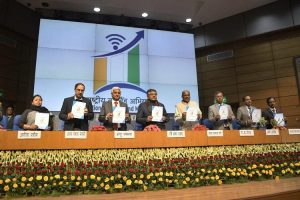
•According to the government, 10% of the funds will come from Universal Service Obligation (USO) Fund and the remaining will come from industry in the form of towers and other assets.
3) GEM launches national outreach programme ‘GeM Samvaad’
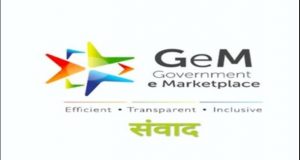
4) Music festival ‘Tansen Samaroh’ begins in Gwalior
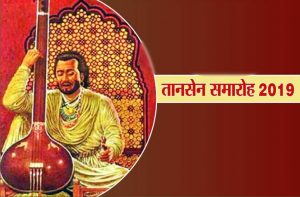
•Tansen Samaroh, the oldest and esteemed classical music festival in India is organised by Ustad Alauddin Khan Kala Evam Sangeet Academy, under the Madhya Pradesh culture department attracts thousands of musicians and aspiring singers from all over the country. It is the 95th year of the festival. Artistes from Greece, USA, Iran and Belgium will perform in different sessions of Tansen festival.
•Noted vocalist Pandit Vidyadhar Vyas will be presented the National Tansen Award for 2019 today on the first day of Tansen Festival. Instituted by the Madhya Pradesh government, Tansen award carries a cash prize of Rs 2 lakh and is given to outstanding exponents of Hindustani classical music.
5) Orange festival begins in Manipur

•Chief Minister N. Biren Singh inaugurated the State-level Orange festival at district Tamenglong in Manipur. Tamenglong district is largest producer of orange fruit in Manipur. The state government under the sponsorship of North Eastern Council organise the festival annually to promote the fruit and encourage its growers. ‘On day one, orange growers’ competition was held and prizes were distributed to top position holders. As part of the festival, cultural show, traditional games, orange queen completion, seminar for growers will be held.
6) Turkey historic mosque moved before dam waters rise
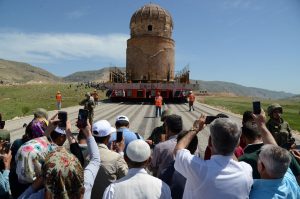
7) British PM Boris Jhonson re-elected as Prime Minister of UK

•Johnson won the historic election as his Conservative Party crossed the 326-mark required for a majority in Parliament. The latest projections put the Johnson-led Conservatives at around 365, but the party can safely celebrate its victory as it comfortably crossed over the half-way finish line for the 650-member House of Commons. The Opposition Labour party is projected to get 203 seats, a disastrous performance for the party which resulted in leader Jeremy Corbyn announced that he would be stepping down.
8) Land-attack version of BrahMos missile successfully test-fired from Odisha’s Chandipur
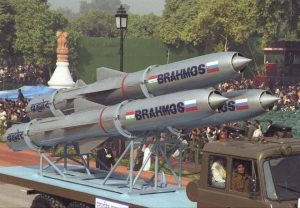
9) Ben Stokes awarded with Sports Personality of the Year 2019 award

•Ben Stokes was Man of the Match as England won the 2019 World Cup for the first time with a dramatic super over victory against New Zealand at Lord’s. He was presented with his award by the Princess Royal and former Manchester United and Scotland footballer Denis Law.
10) GoI signs $250 Mn loan with ADB to expand energy efficiency investments
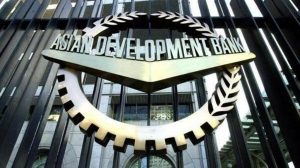
•The project is expected to contribute to the mission of Government of India to promote energy efficiency and meet Government’s commitments to reduce energy intensity of the economy. Introduction of energy-efficient technologies in eligible states including smart meters, distributed solar photovoltaic systems and electric vehicles will help reduce electricity network losses and reduce greenhouse gas emissions.
11) Sridhar Patra appointed NALCO CMD
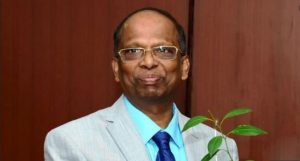
Daily Current Affairs, 17th December 2019
VisionIAS
18:00

1) India slips to 112th place on WEF’s Global Gender Gap Report

•As per WEF, the time it will take to close the gender gap has narrowed to 99.5 years in 2019 while the number was 108 years in 2018. WEF stated that this year’s improvement can largely be ascribed to a significant increase in the number of women in politics.
2) UN Medal awarded to Indian peacekeepers to support the people of South Sudan

•Currently, 2,342 Indian troops and 25 police personnel are deployed with the UN Mission in South Sudan (UNMISS). The Indian troops were particularly praised for their efforts to support peace talks between Government and Opposition forces in the Upper Nile region and establishing the first-ever UNMISS base on the west bank of the Nile at Kodok.
3) Union Rural Development Ministry selected UT of J&K for National award

4) Lt Gen Manoj Mukund Naravane to be next Army Chief
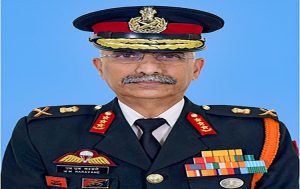
•In a distinguished military career spanning almost four decades, Lt Gen Naravane has the distinction of tenanting key appointments in active Counter Insurgency environments, both in the North East and in Jammu and Kashmir and was a part of the Indian Peace Keeping Force in Sri Lanka during Operation PAWAN. He has been awarded the Sena Medal (Distinguished) for effectively commanding his battalion in Jammu and Kashmir. He is also a recipient of the Vishisht Seva Medal for his services as the Inspector General Assam Rifles (North) in Nagaland and the Ati Vishisht Seva Medal for commanding of a prestigious strike corps. He was honoured with Param Vishisht Seva Medal for his distinguished services as the General Officer Commanding in Chief of the Army Training Command.
5) IAS Ravi Mittal takes charge as new I&B Secy
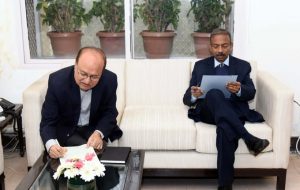
6) 5th EAC meeting of 15th Finance Commission held in New Delhi
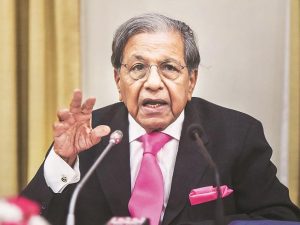
7) Exercise Surya Kiran-XIV held in Nepal
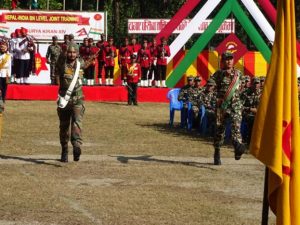
•Joint training exercise was based on counter insurgency operations in jungle and mountainous terrain and also practised response mechanism in the eventualities of natural and man made disasters.
8) ITBP launches matrimonial site to help staff find ‘suitable matches’
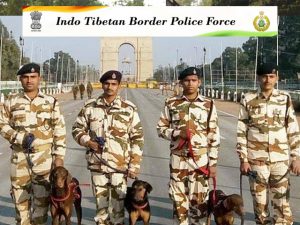
9) ICAR & NABARD signed MoU to promote agriculture & farming systems research
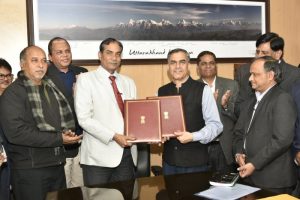
•The research will be of active participation in climate-resilient practices, models and integrated and hi-tech farming practices in a participatory model. The aim of this MoU was to promote sustainable agriculture and climate-resilient farming systems.
10) Unesco removes ‘racist’ Belgian carnival from heritage list


